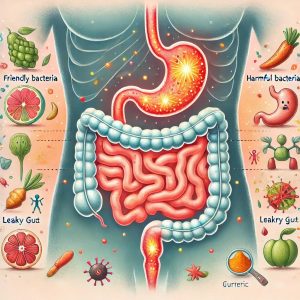Irritable Bowel Syndrome (IBS) is a common digestive disorder that affects millions of people worldwide. While the exact causes of IBS are not fully understood, it’s widely accepted that stress and emotional upheaval play a significant role in its onset or exacerbation. Major life changes, whether positive or negative, can be powerful triggers for IBS. This blog explores the connection between significant life changes and IBS, helping you understand how life transitions may impact digestive health.
How Major Life Changes Can Trigger IBS
Major life changes, such as moving to a new city, changing careers, going through a divorce, or even the birth of a child, can disrupt your body’s natural rhythm. These changes often bring about a mix of emotions, from excitement to anxiety, and this can impact the body in various ways, particularly the digestive system.
1. Stress and the Gut-Brain Axis
The connection between your brain and your gut—known as the gut-brain axis—plays a crucial role in digestive health. The gut contains its own nervous system called the enteric nervous system, which constantly communicates with the brain. When you go through a significant life change, your body’s stress levels often increase, leading to imbalances in this communication.
Stress activates the hypothalamic-pituitary-adrenal (HPA) axis, triggering the release of cortisol and other stress hormones. These hormones can affect gut motility (how quickly food moves through the digestive tract), cause inflammation, and disrupt the balance of gut bacteria, all of which are factors that can contribute to IBS.
2. Emotional Turmoil and Digestive Symptoms
Emotional distress is a well-known trigger for IBS symptoms. When faced with overwhelming emotions like anxiety, grief, or even prolonged periods of excitement, the body can react by disrupting normal digestive functions. Symptoms like bloating, abdominal pain, constipation, and diarrhea may flare up during or after significant life events.
For instance, the stress of a new job or moving to a different city can lead to poor eating habits, lack of exercise, and irregular sleep patterns—all of which may further disturb digestive health. Even positive changes, such as planning a wedding or preparing for a new baby, can bring on stress, which may activate or worsen IBS symptoms.
3. The Role of Change in Routine
IBS is often aggravated by disruptions to routine, and major life changes usually involve some level of routine disruption. For example, if you’re starting a new job, moving, or traveling frequently, your regular meal times, diet, and sleep schedule may be affected. Irregular eating and poor food choices can irritate the digestive tract, making IBS symptoms more likely to flare up.
Common Life Changes That Can Trigger IBS
While every person’s experience is different, there are several common life changes that have been linked to the onset or worsening of IBS:
Career Changes: New job responsibilities, changes in work environment, or job loss can lead to increased stress and disrupted eating habits.
Relocation: Moving to a new home or city can trigger anxiety, disrupt your daily routine, and affect your diet.
Relationship Changes: Divorce, the loss of a loved one, or even the joy of a new relationship can all be emotionally taxing, triggering IBS symptoms.
Pregnancy and Parenthood: The physical and emotional demands of pregnancy, childbirth, and raising a child can lead to stress, hormonal fluctuations, and changes in routine—all of which can impact the digestive system.
Health Crises: Illness, surgery, or a major health diagnosis (such as becoming an ostomate) can create a cycle of anxiety and digestive distress.
Coping Strategies for IBS During Life Transitions
Managing IBS during major life changes requires a holistic approach that addresses both the physical and emotional factors at play. Here are some strategies to help you cope:
1. Mindfulness and Stress Management
Practicing mindfulness, yoga, or meditation can help reduce the stress that exacerbates IBS symptoms. These practices activate the parasympathetic nervous system, often called the “rest and digest” response, helping calm the gut-brain axis. Yoga therapy, in particular, has been shown to improve digestive health by reducing stress and improving gut motility.
2. Dietary Adjustments
Maintaining a regular, balanced diet is crucial for managing IBS. Even during times of major change, try to avoid known IBS trigger foods such as fatty meals, dairy, and processed foods. Consider a low-FODMAP diet if your symptoms are severe, as this has been shown to reduce IBS flare-ups.
3. Seek Support
Whether it’s through therapy, counseling, or support groups, talking about your feelings and experiences can help alleviate the emotional burden of major life changes. Emotional support is a key part of reducing stress, which in turn can lessen the severity of IBS symptoms.
4. Physical Activity
Engaging in regular, gentle exercise can help relieve stress and improve gut function. Activities like walking, swimming, and yoga can help regulate the digestive system and improve overall mental and physical health.
Conclusion
Major life changes, while often inevitable, can have a profound impact on your digestive health. Understanding how these transitions affect your body, particularly if you suffer from IBS, is crucial for managing your symptoms. By addressing stress, maintaining healthy routines, and seeking support, you can navigate life’s changes without letting IBS control your well-being.
Have you noticed IBS symptoms during major life changes? What strategies have helped you manage them? Share your experience in the comments below or reach out if you’d like to learn more about holistic approaches to managing IBS during stressful transitions.







0 Comments